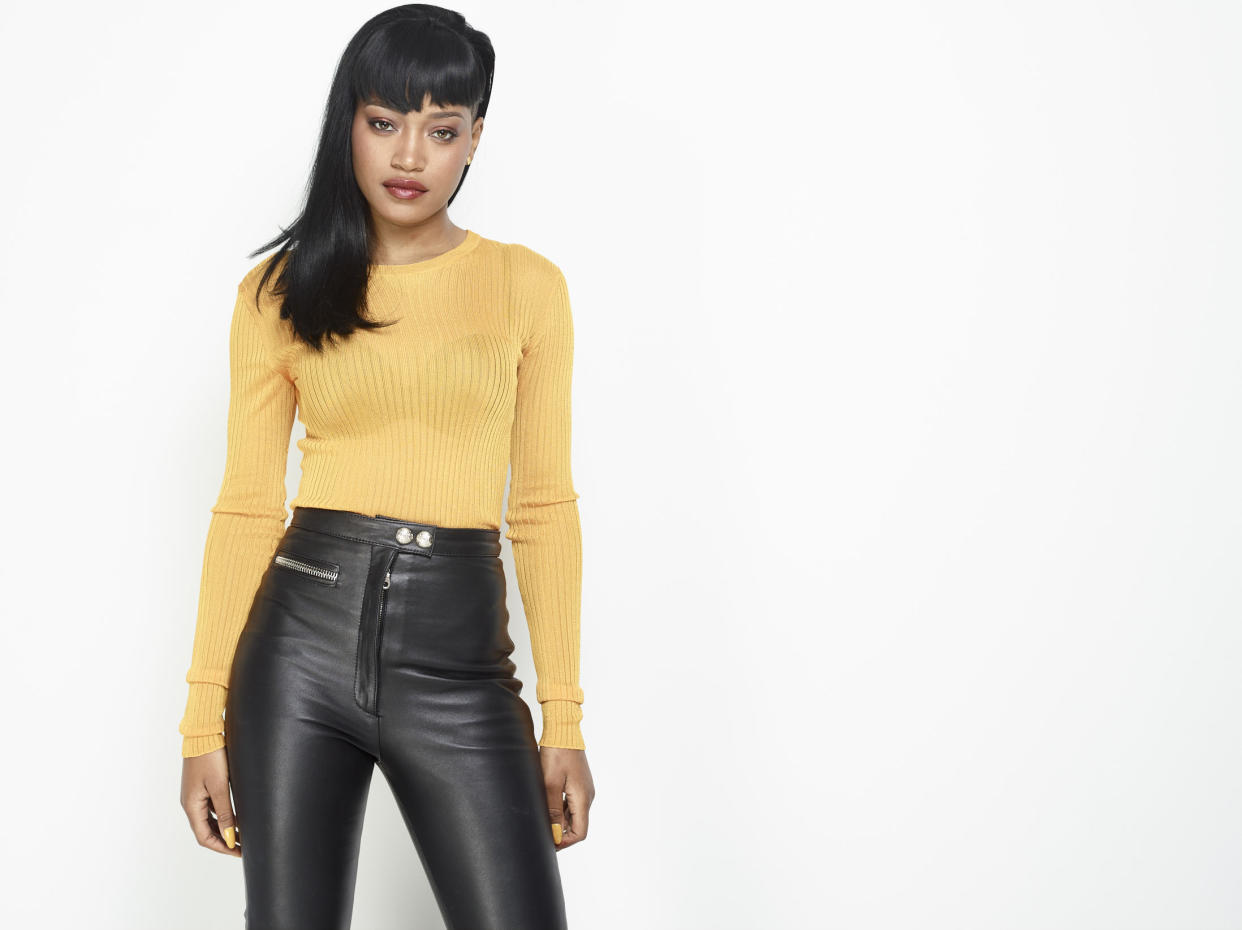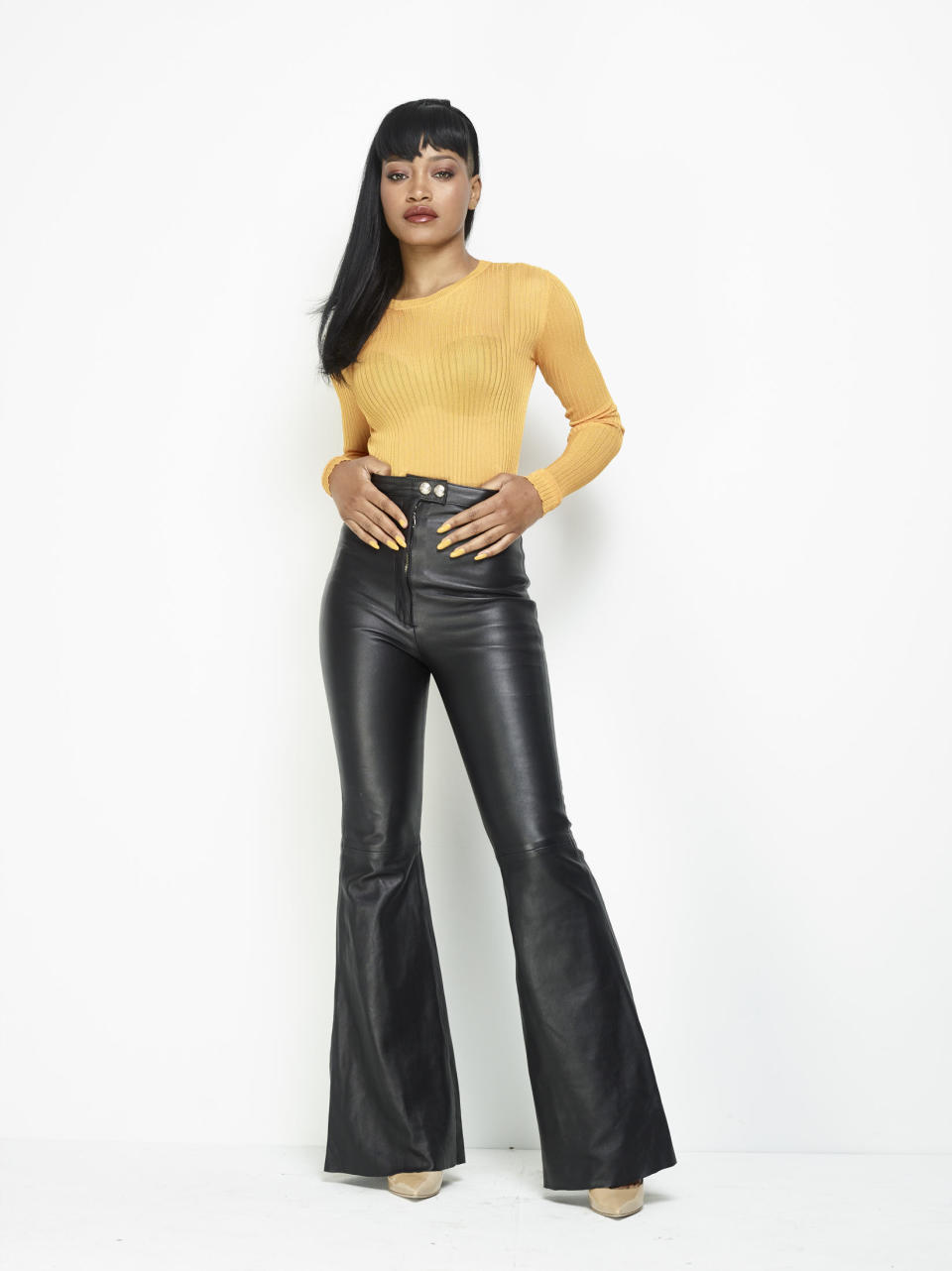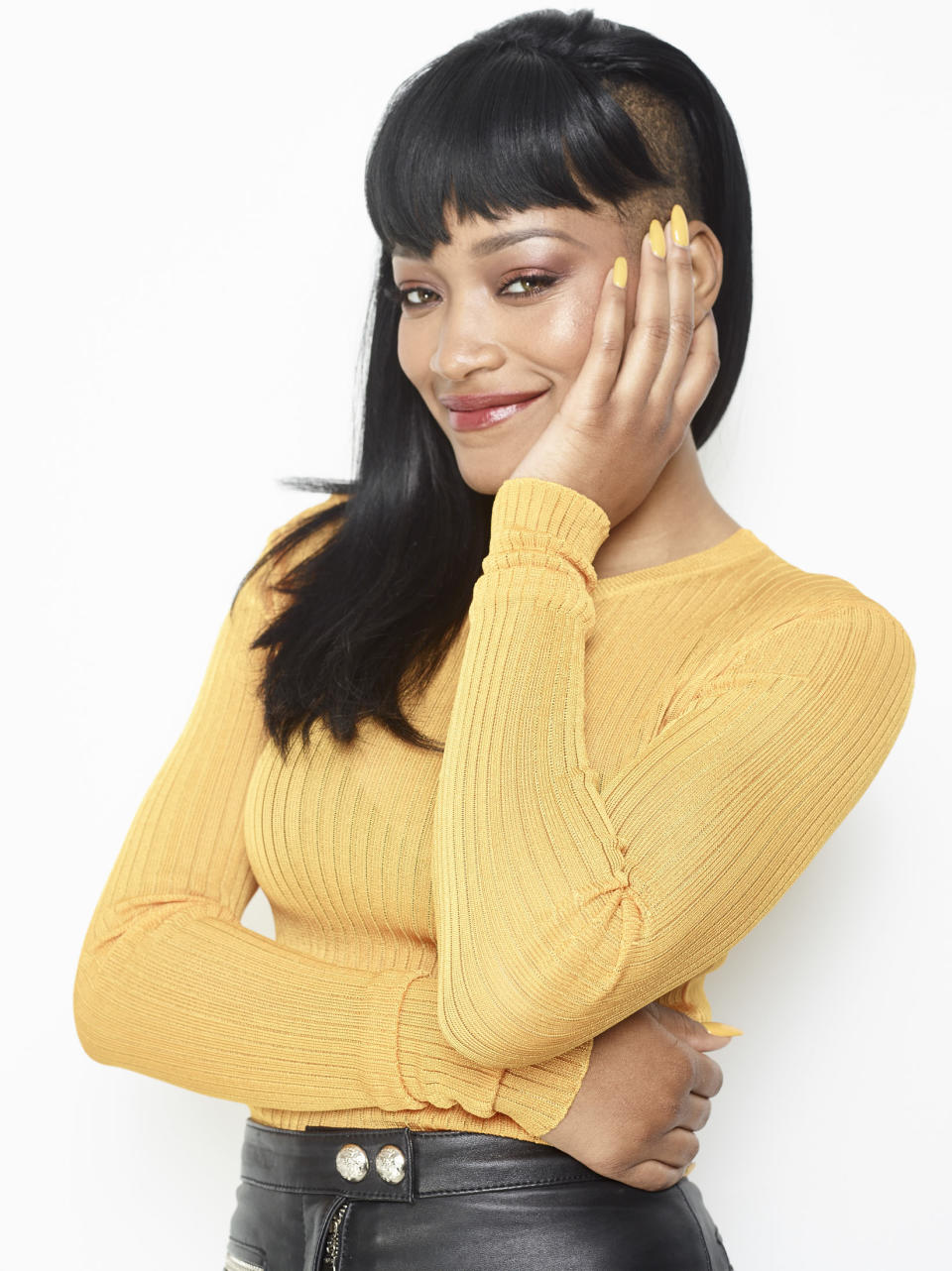Keke Palmer Opens Up About Anxiety in Her New Book


As a child actress, Keke Palmer and her mom had a trick they used to play at auditions, just before they were about to leave the room: Palmer would ask, seemingly out of nowhere and as endearingly as possible, to sing for the group. Her mom, pretending not to know this was coming, would tell Palmer that nobody had time for that, that’s not what these people were there for. “Mommy, please!” Palmer would say. The bigwigs in the room would usually cave. “I know this might sound elaborate, and some people might think my mom and I were pulling a little Heartbreakers con,” Palmer writes in her new book, I Don’t Belong to You: Quiet the Noise and Find Your Voice. “But the truth is that this is how we were being creative, how we bonded, and how we showed them that I was more than just a little black girl from Chicago.”
Palmer, now 23, doesn’t know that these maneuvers sealed the deal for any roles in particular, but that’s beside the point. She’s sharing the story as an example of the “fearlessness” she had to summon as a kid in Hollywood, where she and her family - Mom, Dad, three sisters, and a brother - moved when she was 9 years old, after she landed her first movie role in Barbershop 2. Finding that strength wasn't always easy. “I felt like, ‘Oh my gosh, I’m so alone,’” she says over a late lunch in L.A. “Then as I grew, I realized I wasn’t the only person going through this.” It was during her Broadway run as Cinderella that Palmer - who's also known for Scream Queens, Grease Live!, and her BET talk show Just Keke - thought to add “inspirational author” to her growing list of accomplishments.

Her book, out this week, is a mix of memoir and self-help that takes you through Palmer’s career-highs (earning critical praise for her star turn in Akeelah and the Bee when she was 12) and lows (shouldering the lackluster performance of her first album, 2007’s So UnCool, when she was 14), and the crippling anxiety and depression that has come with it all. “Being able to say how I feel, that was something that was so hard for me for so long,” Palmer says. Through years of routine therapy, meditation, and self-reflection, all of which she chronicles in her book, she's managed to change that. Today, Palmer is quick to admit when she's feeling hurt or overwhelmed, and chances are you've seen her go after haters with a swiftness.
Just days before we meet, she blasted Trey Songz on Instagram for featuring her in his and Fabolous' “Pick Up the Phone” video, alleging she didn’t give him permission to use her likeness and that her appearance in the video was the result of “food and alcohol” and “sexual intimidation” during a house party in Miami. According to Palmer, she hid in a closet during the party because she feared she was being unwantedly filmed. “In general, it’s very nerve-wracking to say how you feel,” she says of her decision to speak out. (She also plans to take legal action, according to an interview with Larry King.) The Keke of three or four years ago "wouldn’t have had the courage to say anything like that, ever,” she says. “But I’ve gained so much assuredness in myself.”

The key is putting in the work (again: therapy, self-care) and knowing when to hit pause. As we speak, Palmer is readying herself for a move to Atlanta for a “break” from Los Angeles. “I definitely need some major time away,” she says. That’s not to say she won’t keep acting (and, yes, she’ll shoot a third season of Scream Queens if Fox orders one). She just doesn’t want to be surrounded by the entertainment world 24/7. “It’s becoming overwhelming, the industry,” she says. She wants to focus on spreading the messages of her book, expanding her work as a philanthropist (she’s a volunteer for the Boys and Girls Club), and engaging her generation - especially at a time like this. "We all feel confused and betrayed,” she says, referencing the election of Donald Trump. “Why would you like this guy when he hates me? In every fashion, whatever community you’re from, he’s insulted you in some way.” If she’s hopeful, she says, it’s because she doesn’t see people keeping quiet. “I attribute a lot of that to the internet and the independence that it gives you to roam and find your own opinion about things.”
"Roaming" and "finding [her] own opinion" have defined much of her own young adult life so far. She's grappled with religion (she was raised a devout Catholic) and sexuality (she doesn't want to be put in a box). “What I felt as I got older was that [Catholicism] was so attached to so many rules that it made me feel less connected to God," she says. "It made me feel stifled.” Now she prays, she repeatedly attributes her success to God - but she doesn’t define herself by anything. “I’m limitless,” she says. “You’re going to always be confused if you’re trying to label me.”
She’s loath to even label her own book as a "guide to self-empowerment." “The book is not saying, ‘I’ve been there, I’ve done it, I know.’ It’s like, ‘Guess what, you never know.’” But you have a voice and you should use it. “If you grow up in the industry, it forces you to be agreeable at all times," Palmer says. "When it came to saying, ‘I’m tired and I want to figure out how to balance my life better,’ ‘I feel lonely, ‘I’m afraid of my stardom’ - those things I could not say.” Not anymore. “It’s OK to say how you feel," she says. "It feels good to be there for you.”
Follow Whitney on Twitter.
You Might Also Like

